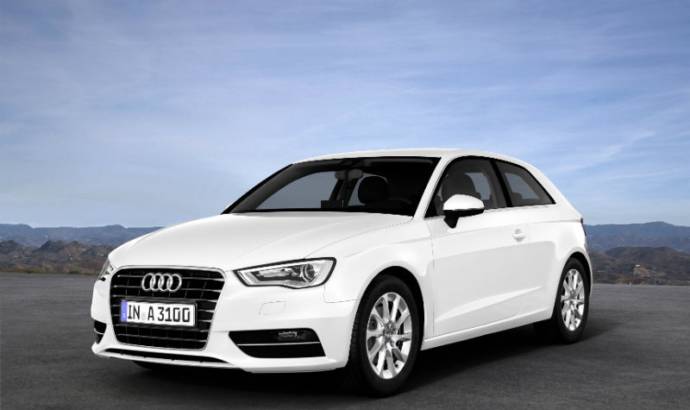Audi has unveiled the brand’s most fuel-efficient production model. With 81 kW (110 hp) of power output, the Audi A3 1.6 TDI Ultra consumes just 3.2 liters of diesel per 100 kilometers (73.50 US mpg). This equates to 85 grams of CO2 emissions per kilometer (136.79 g/mile). This versatile marvel of fuel economy is now for sale. Customers can take delivery of the Audi A3 1.6 TDI ultra starting in September. The base price in Germany will be 25,200 euros.
Boasting a top speed of 200 km/h (124.27 mph) and acceleration from 0 to 100 km/h (62.14 mph) in a mere 10.5 seconds, the A3 1.6 TDI ultra is thoroughly sporty. Every bit as impressive: it truly excels at long-distance drives. Its 50-liter (13.21 US gallons) fuel tank facilitates trips in excess of 1,500 kilometers (932.06 miles).
The five-door A3 1.6 TDI ultra is every bit as spacious and comfortable as the rest of Audi’s model line of premium compact cars. It also features air conditioning, Audi radio and power windows as standard equipment. Moreover, the A3 1.6 TDI ultra is available as a three-door compact or a five-door Sportback.
The A3 1.6 TDI ultra weighs a mere 1,205 kilograms (2,656.57 lb). Aerodynamics were enhanced not only by the S line side sills, but also by lowering the A3 ultra’s body by 15 millimeters (0.59 in). 205/55 R16 tires with optimized rolling resistance as well as a longer final drive ratio further improve the efficiency of the A3 1.6 TDI ultra.
This latest A3 is not only the most efficient Audi; it is also the brand’s first model to bear the ultra epithet. The ultra designation expresses the brand’s all-encompassing commitment to systematic sustainability concerning production and products.
In coming months, Audi will unveil ultra versions in other model lines featuring TDI and TFSI engines. Like the Audi A3 1.6 TDI ultra, they too will distinguish themselves thanks to a considerable focus on technology reducing fuel consumption and emissions.



